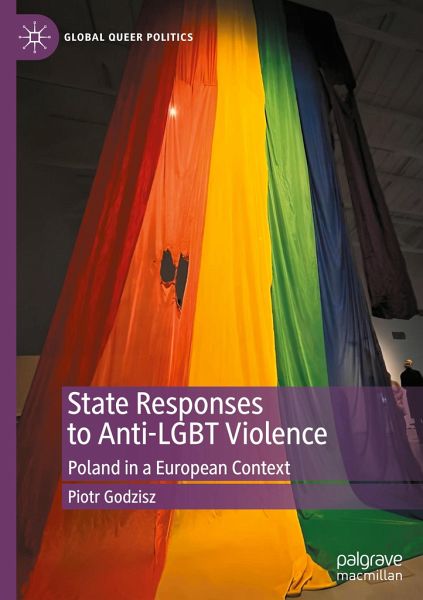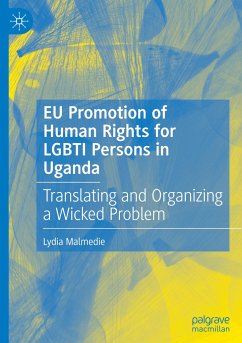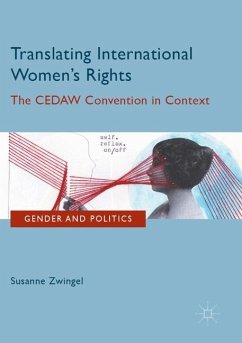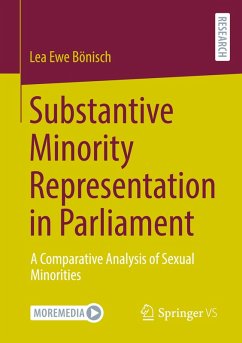
State Responses to Anti-LGBT Violence
Poland in a European Context
Versandkostenfrei!
Versandfertig in 6-10 Tagen
98,99 €
inkl. MwSt.
Weitere Ausgaben:

PAYBACK Punkte
49 °P sammeln!
This book offers a much-needed analysis of the difficulties associated with providing state protection from violence based on sexual orientation and gender identity in Europe. Focusing on Poland as a national case study, encompassed in the broader European context, the book provides a holistic analysis of internal and external factors influencing state-level policy outcomes. By focusing on hate crime advocacy and carefully dissecting it from the rest of the LGBT rights "package," the book fills a gap in queer scholarship, which has overlooked this aspect of mobilisation. The book also examines...
This book offers a much-needed analysis of the difficulties associated with providing state protection from violence based on sexual orientation and gender identity in Europe. Focusing on Poland as a national case study, encompassed in the broader European context, the book provides a holistic analysis of internal and external factors influencing state-level policy outcomes. By focusing on hate crime advocacy and carefully dissecting it from the rest of the LGBT rights "package," the book fills a gap in queer scholarship, which has overlooked this aspect of mobilisation. The book also examines the emerging international standards and provides a comparative analysis of national laws, policies and practices on anti-LGBT hate crime across Europe. Highlighting variance in outcomes in different areas of LGBT rights, this book considers the role of lesser-known actors and mechanisms who are key in enacting critical policy changes. State Responses to Anti-LGBT Violence provides a critical reflection on the complicated relationships between queer communities and the state.














